Tho Ha Village in Van Ha Commune, Viet Yen District, Bac Giang Province, about 50km northeast of Hanoi, is considered the “sacred land”. Here, there are many typical village cultural examples of the North with communal houses, temples, pagodas and festivals.
The Tho Ha Village Festival is held over three days, from the 20th to the 22nd of January, on the lunar calendar. The major day of the festival falls on the 21st. The festival with its procession is held once every three years so it is eagerly awaited by all of the villagers.
From Hanoi to the village, tourists must go through Tho Ha Wharf on the bank of the Cau River that is decorated and lively during the festival. In the village, a wooden gate is erected as a custom that has existed since the Ly Dynasty (1010-1225). At that time on the 5th day of Tet, the king and his entourage rowed on the Red River from Thang Long (present-day Hanoi) to Hai Phong and back down to the Cau River and to the Tho Ha Communal House to drink wine.
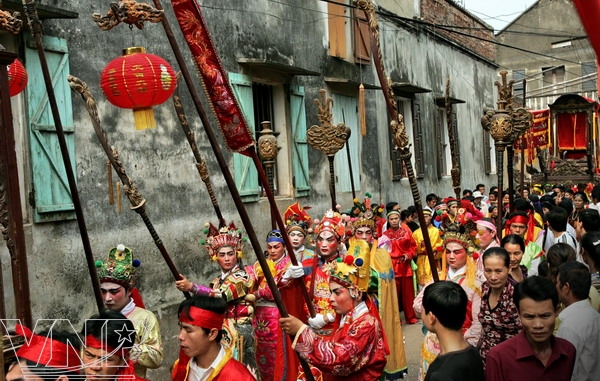
The procession for the patron saint of the village at the festival.
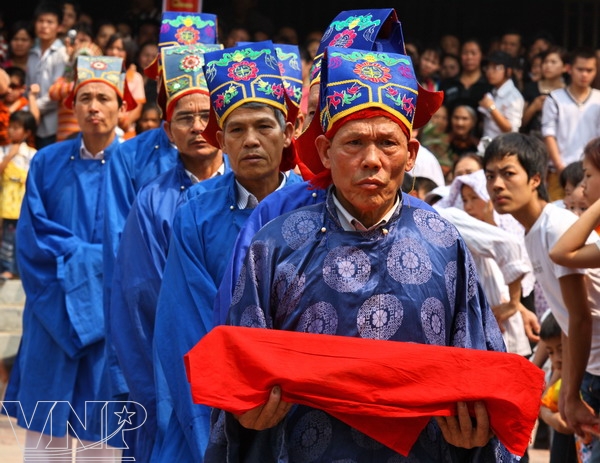
The village elders carry decrees granted by the king to the communal house.
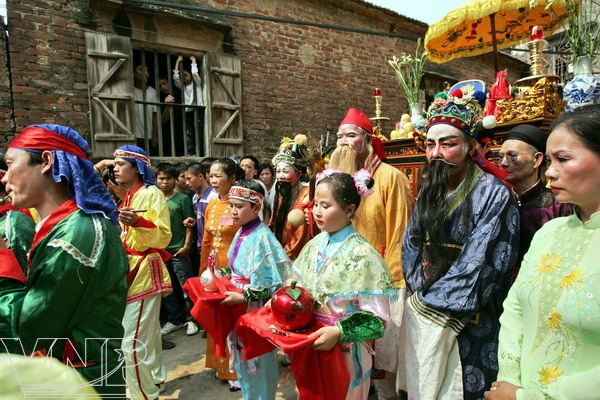
Reenacting the images of the three Abundances (happiness, richness and longevity) with little angels and fairies.

Carrying offerings to the communal house.

Drummers open the festival.
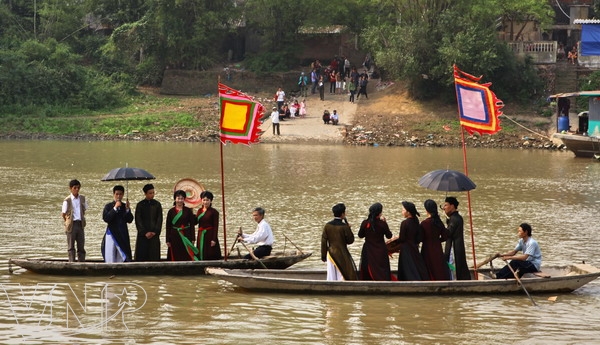
Singing Quan ho (love duets) on the Cau River.
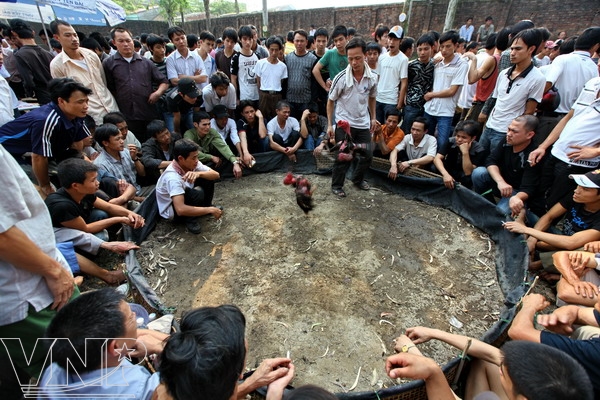
The largest cock-fighting competition in the North is held at the festival. |
In the early morning, the village is awakened by the rolling sound of drums. The villagers crowd into the communal house and burn incense in commemoration of their ancestors. Three hamlets in the village hold palanquin processions to the village’s communal house that attract the participation of hundreds of people. All of them are in motley costumes and those who play the role of mandarin wear a gown and long beard. The soldiers wear red shirts, red hats and yellow leggings and hold an imperial lance. Old people and women with their heads tied with kerchiefs wear four-flap gowns and traditional long dresses. Strong men in festive costumes carry decorated palanquin and offerings. The processions include a musical team that plays a clarinet, a drum and a two-string Chinese violin. Both sides of the village road are decorated with colourful flags. At the communal house, the village elders are correctly dressed to receive the procession and prepare for the solemn rituals.
After the rites, many cultural activities are held, such as competitions on making pottery and griddle-cakes, cock-fighting, chess and wrestling that attract young people and children. On the Cau River, the villagers organize a boat race and a competition that involves rowing boats to catch ducks. However, the most exciting part is Tho Ha Quan ho (love duet). The sweet and romantic lyrics of the songs fascinate all visitors. The village artists also perform Tuong (classical drama) at the communal house in the evening.
On festival days the villagers practice a very special custom. All families receive and give a warm reception to visitors to the festival because they believe the more visitors that visit their house the luckier the family will be.
The festival provides a chance for the villagers to honour and express their gratitude to the village’s patron saint and Dao Tri Tien, the pottery ancestor. It is a cultural feature of the people in the North. The festival makes a contribution to preserving and promoting the cultural values of the Vietnamese people.
Story: Nguyen Tuan Long
Photos: Trong Chinh – An Thanh Dat
Bài: Nguyễn Tuấn Long - Ảnh: Trọng Chính, An Thành Đạt